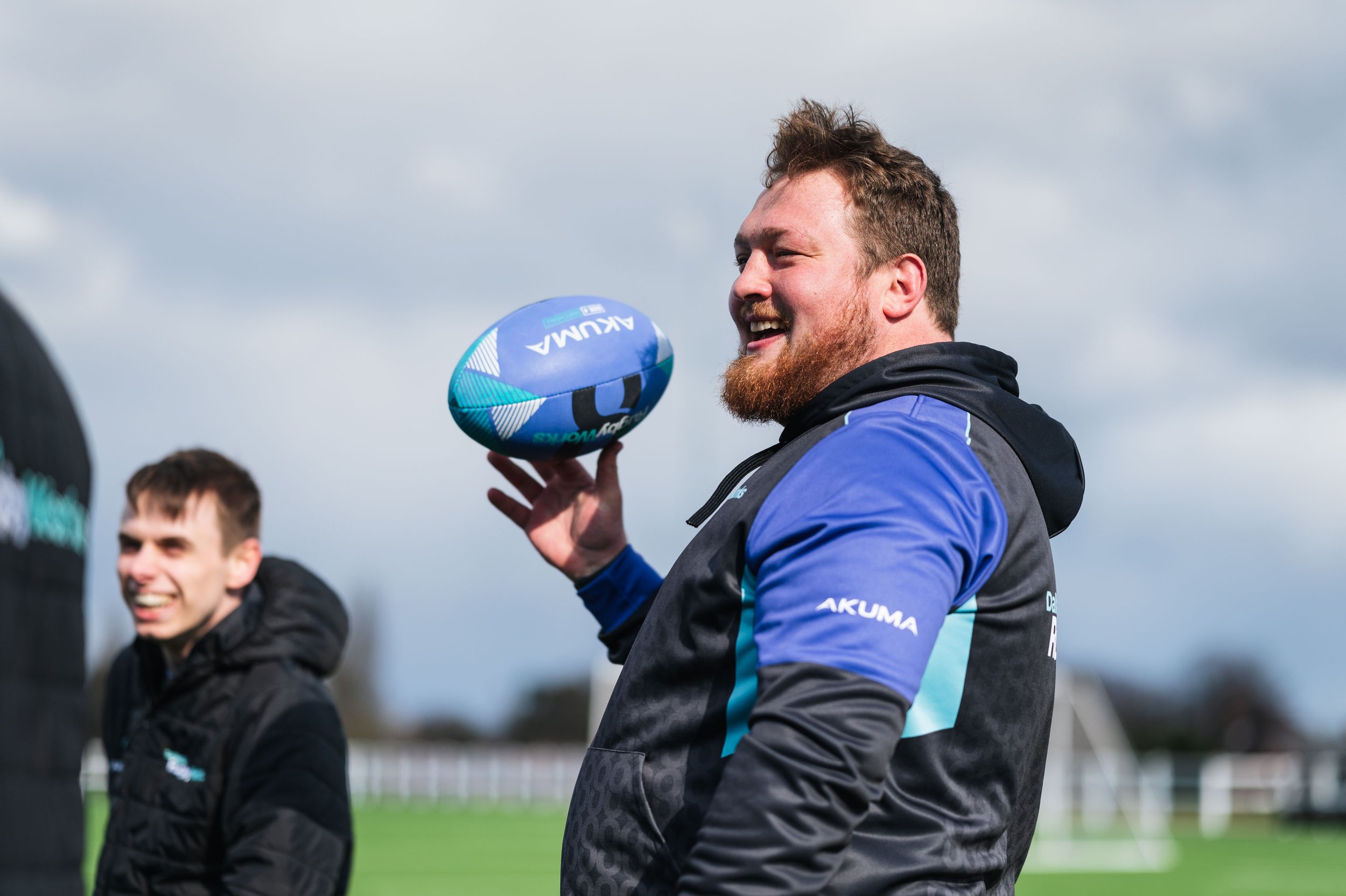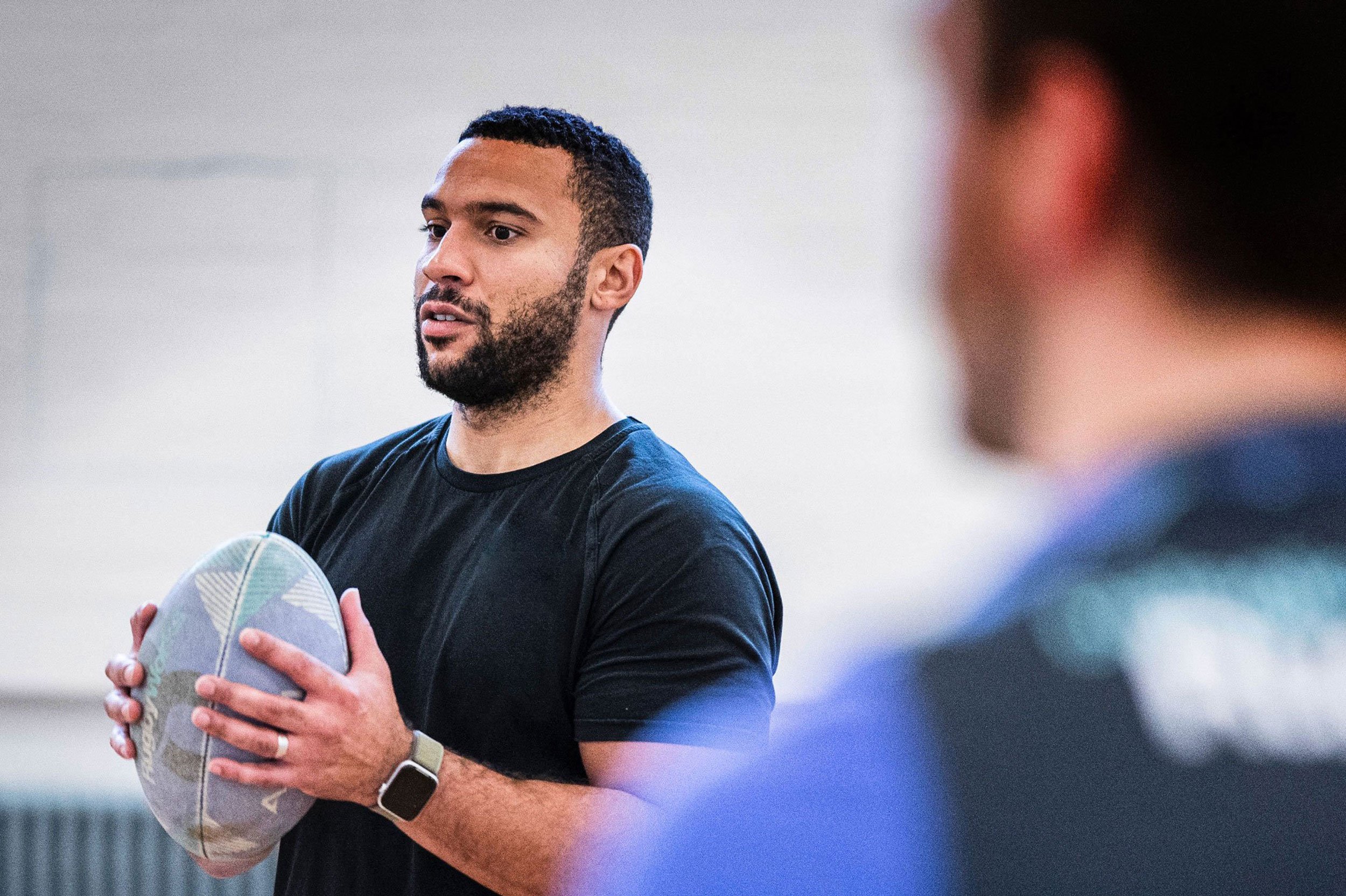
Impact
Impact in numbers
worked with to date
programme sustained EET post 16
are on Free School Meals
In the 2023/24 academic year, 10,885 students were excluded from mainstream education in the UK.
The statistics show that pupils leaving Alternative Provision (AP provides education for pupils that due to exclusion would not otherwise receive suitable education) at 16 perform considerably worse than peers in mainstream schools in educational attainment and in their post-16 transition. Only 62% of pupils from AP go into sustained education, employment or training, compared to 94% from mainstream schools and without the qualifications required for many jobs, it is difficult for them to secure long-term employment and, coupled with the lack of guidance on future paths, many struggle to understand their options in work or training. This shows the desperate need for the work that Dallaglio RugbyWorks does in supporting young people from the most disadvantaged backgrounds to change their life trajectories.
Developing Life Skills
Only 4% of the students from AP settings pass English and Maths GCSEs, compared to 64% in mainstream schools. We are using a combination of active-based learning sessions, our Player Profiles skills development app and 1:1 mentor support to build the skills identified by the World Economic Forum as essential for the 2025 workplace, in our young people, and as a result 93% of them have increased progress in core subjects through participation in our sessions.
Employment, Education and Training (EET)
With the cost of youth unemployment over the next decade being estimated at £28 billion and only 62% of students in local authority-maintained APs sustaining positive destinations compared to 94% in mainstream schools, the future for our young people is looking dark. Young people on our programme are more likely to be in further education, employment and training post-18, with 89% of our young people being sustained EET.
Attendance
We know that there is a significant correlation between pupil attendance and attainment in school and that young people who are on Free School Meals and come from disadvantaged backgrounds experienced greater learning losses than their more affluent peers during the Covid-19 pandemic. 79% of our school leaders reported that they observed some improvements in our participants’ attendance.
Physical Activity
We know that active young people do better at school in attainment and achievement but during the academic year 2020-21, there were 94,000 fewer active children and young people compared to the year before the pandemic (2018-19). Those from the least affluent families are the least active, and this gap has widened since the start of the pandemic – in part because low affluence families have less access to outdoor space. Our work with the most disadvantaged young people across England and Wales has led to 85% of them feeling that their levels of physical activity had improved thus increasing their chances of do better in school.
3-7pm
Evidence shows that disadvantaged young people are far more likely to become the victims of, or the perpetrators of violent crime in the hours of 3pm–7pm when they finish school and before they get home. Data from the British Medical Journal echoes this, finding that the most common time of day for violence is after school. As a result we have developed post-school delivery which engages at risk young people after school, essentially extending their school day, lowering their chances of being involved in violent crime as well as limiting the attainment gap they would face if only ever engaging in productive activities whilst in school. Our young people have been able to create more and deepen their trusted adult relationships during this time as well as work on things like their Sports Leaders Qualifications therefore increasing their chances of positive productive futures and being EET post 16.
Own Development Journey (PP)
Our innovative platform Player Profiles is supporting our young people to own their own development journey through the identification of their own skill level, selecting of their own goals they want to work on and self-assessing and validating their own achievements.
For more insights into our impact, please read more on our Case Studies page or download our Impact Reports:






